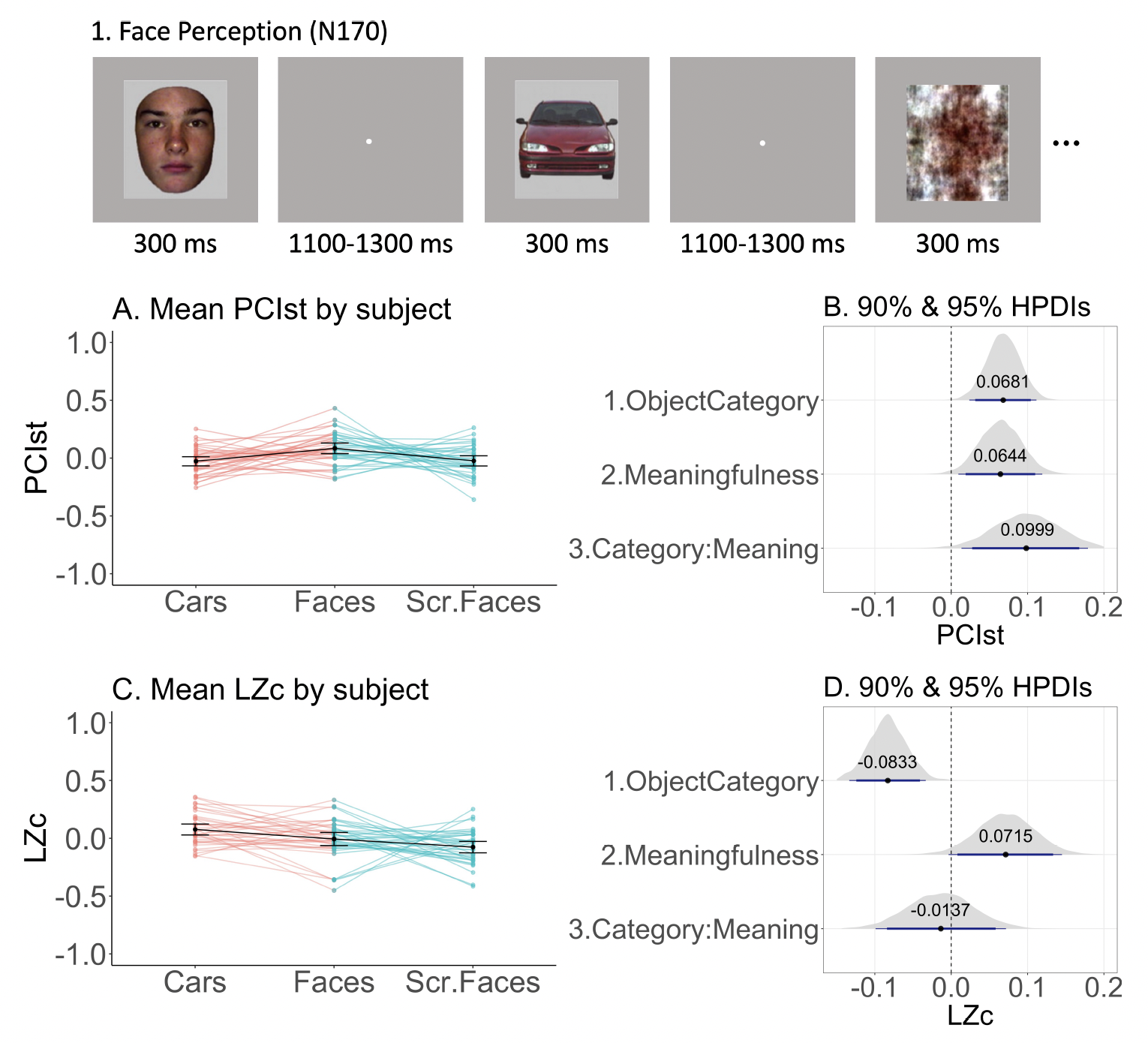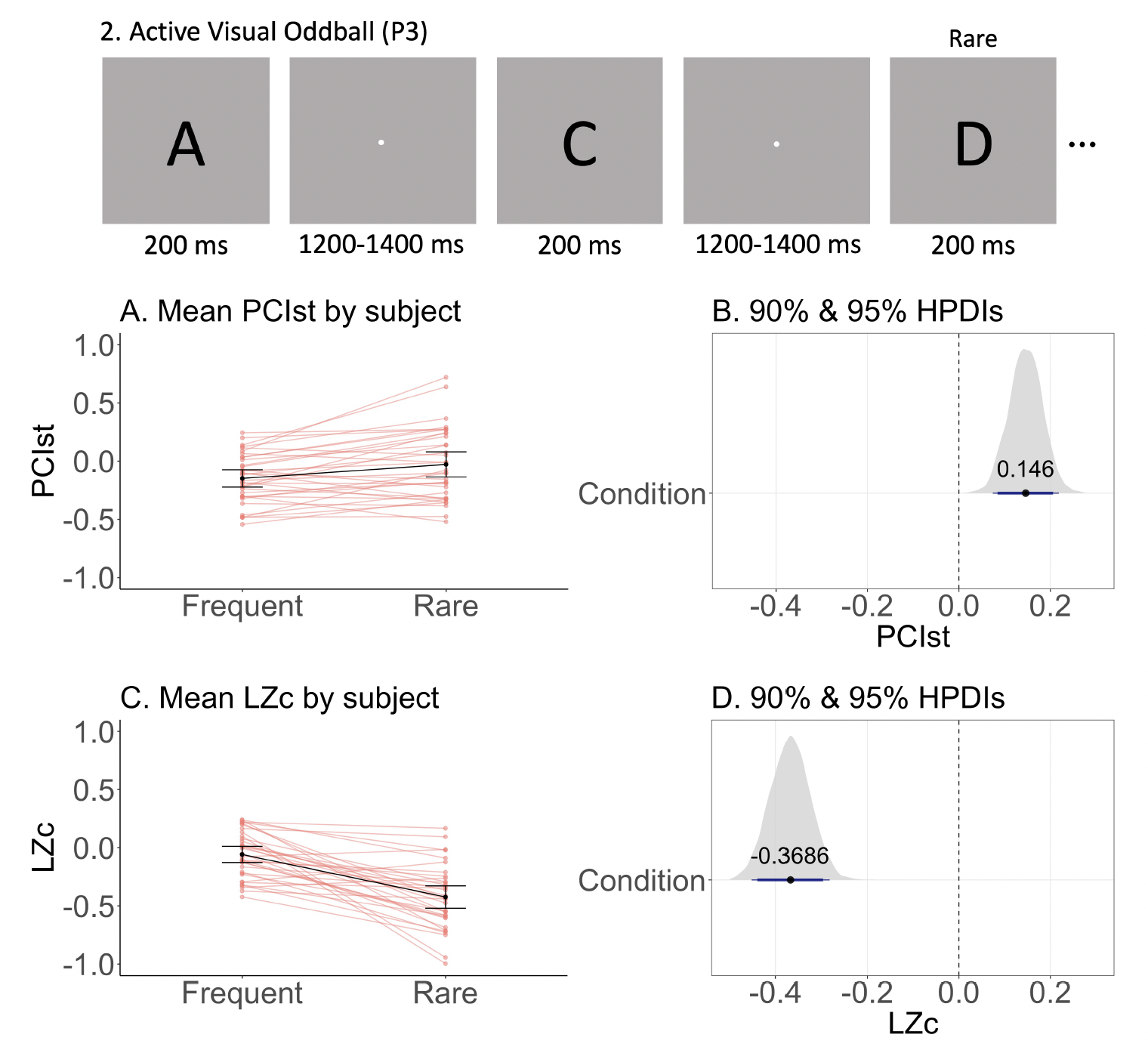Detecting differences in conscious contents using EEG complexity measures (proof of concept)
Perturbational complexity index (PCI) is a measure of consciousness that was motivated by integrated information theory’s (IT) claim that consciousness is phenomenologically integrated and differentiated. PCI quantifies the brain’s spatiotemporal response to a TMS-evoked potential using EEG. The original formulation (PCIlz) uses source localization and Lempel-Ziv complexity (LZc); the latest formulation (PCIst) uses principal component decomposition and state-transition quantification. Although both versions of PCI have been shown to discriminate conscious level, and previous work with related measures of neural differentiation have been shown to discriminate meaningful and non-meaningful visual stimuli, results for LZc have been inconsistent, and comparable work hasn’t been done with PCIst. To investigate these questions, we analyzed three EEG datasets where 40 participants performed an active face perception task, an active visual oddball task, and a passive auditory oddball task. We computed PCIst and LZc for every trial and analyzed the results using Bayesian mixed-effects models. We found that i) PCIst was higher for meaningful visual stimuli but that LZc could be higher or lower; i) PCIst was higher for rare visual stimuli but LZc was lower; and ili) PCIst was higher for rare auditory stimuli but LZc did not discriminate rare vs. frequent auditory stimuli. These findings indicate that PCIst discriminates visual and auditory stimuli more reliably and more consistently than LZc. We suggest that these differences can be explained by differences in how PCIst and LZc are operationalized, and we conclude with a discussion of limitations and opportunities for future work.

Figure 1. PCIST is higher for meaningful visual stimuli (for coarse- and finegrained differences), but LZc can be higher or lower.

Figure 2. PCIST is higher for rare visual stimuli, but LZc is lower.
Talks:
- University of California, Los Angeles, Department of Psychology (MontiLab), Zoom (December 11th, 2023) (*invited)
- University of California, Merced, Department of Cognitive and Information Sciences Annual Project Mini-Conference, Merced, CA (May 8th, 2023)
Posters:
- Association for the Scientific Study of Consciousness 26, New York, NY (June 23rd – 25th, 2023) (awarded 2nd place in the student poster competition)
- Aalto University School of Science, Department of Neuroscience & Biomedical Engineering 9th Science Factory: TMS–EEG Summer School and Workshop, Espoo, Finland (May 27th – June 2nd, 2023)
